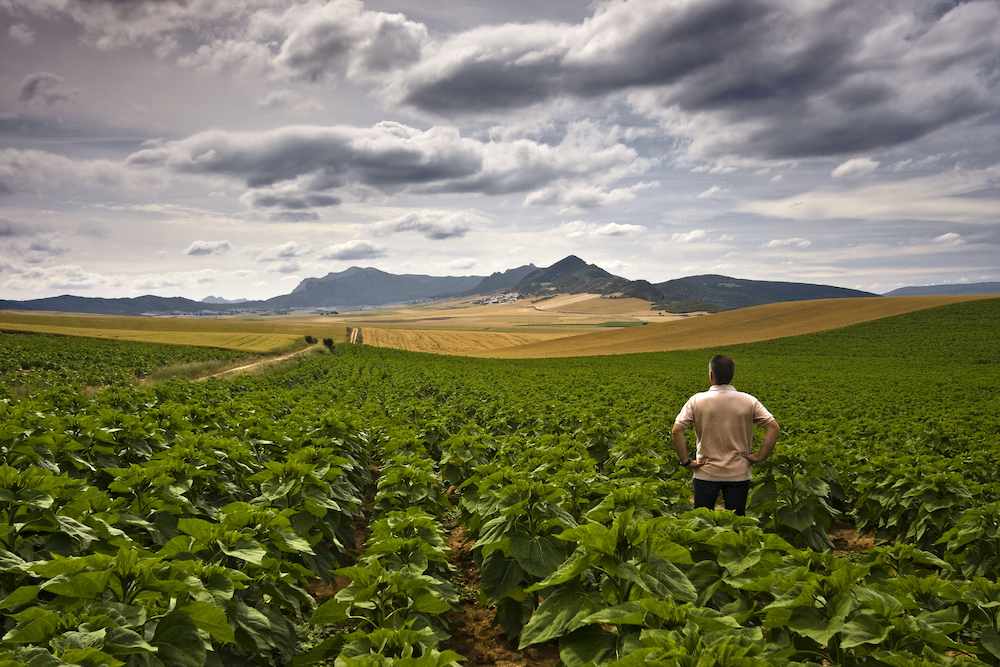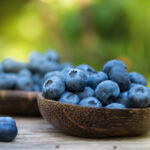Opinion: new organic agreement to bring U.S. and E.U. closer together

By Greenscans co-founder and BerryBroad Juanita Gaglio
 It was 12 years ago that I attended my first Natural West Expo in Anaheim, California. The vendors were leftover hippies selling everything from health supplements to clothes to beauty products, packaged goods consisting of meat substitutes and "organic" crackers. Having grown up in California in the 60s, I felt right at home among the long hair and tie dyed shirts. There was one booth displaying produce.
It was 12 years ago that I attended my first Natural West Expo in Anaheim, California. The vendors were leftover hippies selling everything from health supplements to clothes to beauty products, packaged goods consisting of meat substitutes and "organic" crackers. Having grown up in California in the 60s, I felt right at home among the long hair and tie dyed shirts. There was one booth displaying produce.
By March 2012 the Natural West Expo had exploded into big business, both for the vendors and the private equity groups in business suits that are vetting companies for investment opportunities. Most produce companies are exhibiting at the show; most notably was UNFI (United Natural Foods), one the largest wholesaler-distributors in the natural organic and wellness products industry. They distribute 60,000 products worldwide ranging from apples to yoga mats. Not only have the vendor exhibits expanded to organic wine and "organic" dog food but there are daily seminars sponsored by major organic food labels, from GMO (Genetically Modified Organism) initiatives to social media marketing with organics.
My point is that organics have come a long way from the "hippie" industry to mainstream supermarkets.
This growth and interest parallels with a consumer research study by the Organic Trade Association in 2011. The USDA (United States Department of Agriculture) organic seal used on organic packaging is becoming increasingly familiar with parents growing more accustomed to looking for the label when shopping. Consumers report moderate to high levels of trust in the authenticity of the product with the USDA label. U.S. families' purchases of organic products have increased to four in 10 shoppers purchasing organics, with health concerns given as the primary reason.
Organic across the Atlantic
Outside of Natural Expo West in the U.S., the leading international organic trade expo BioFach is annually in Nuremberg, Germany, hosting 40,315 attendees from 130 countries in February 2012. It was at this year's organic trade fair that a ground breaking agreement was signed by the European Commissioner for Agriculture and Rural Development, Dacian Ciolos and the U.S Agriculture Deputy Secretary, Kathleen Merrigan.
This trade deal is particularly meaningful as all products meeting the terms of the partnership can be traded and labeled organic from produce to meats to cereal or wine in either market.
Organic producers and processors will no longer require additional certification to export their products eliminating extra costs for separate certificates. At a time when the global economy is teetering, this will certainly benefit small and medium scale firms on both sides of the Atlantic.
With Europe leading the largest growth of organic agricultural land in 2010, from 0.8 million hectares to 10 million hectares (+9%), this agreement is a harbinger of increased job growth to come in the organic sector. Monetary value for both the U.S and E.U organic sector is roughly €40 billion (US$50 billion).
Back to the research on why consumers purchase organic - with health benefits and a high level of trust and product authenticity, consumers will benefit greatly as pricing becomes more competitive with the influx of more organic products. Having lived in Europe, I am looking forward to seeing some of the products I enjoyed, being available in the U.S market.
China's increased organic certification enforcement
A world apart, everything in the organic sector has suddenly tightened up in China. Chinese import s of organic foods were about US$20 million in 2009, and with foreigners and increasingly higher income for local people the market has been growing.
The United States and Europe are two key exporters of organic foods to China. Unfortunately, food scandals that have rocked the Chinese food supply have leaked into the organic sector. Chinese organic farmers acknowledged using fertilizers or pesticides that are banned for organic production in order to boost yield. Furthermore, organic certificates can be easily purchased.
On Mar. 1, 2012 the Chinese government enacted the new version of the China National Organic Product Standard and the Rules on Organic Certification. The stringent requirements limit organic exports from a zero tolerance approach to increase on site crop inspection including air, soil and water testing.
Analysts predict diminishing organic exports with requirements that are too strict and costly. Can China afford to isolate itself at a time when organic global standards are being standardized by geographical region?
Milestones and bringing countries together
Another milestone at this year's BioFach was approval of the Asia Regional Organic Standard, initiated in 2010, developed by stakeholders in East, Southeast and South Asian countries, with most participants coming from the latter two Regions. As the recent agreement between the U.S and E.U stands to benefit producers and consumers, hopefully this will be a model for China to analyze and re-think its new organic requirements on imports.
It is said that food and music bring cultures together. Organic food, in all its abundance, is proving to do just that and across a cultural divide. Perhaps next year's BioFach will reveal some positive steps by the Chinese to enlist in a regional organic committee to relax trade requirements for organics.
Related stories: E.U. importers believe new organic accord will boost U.S. trade
U.S.-European Union organic trade deal takes effect















































